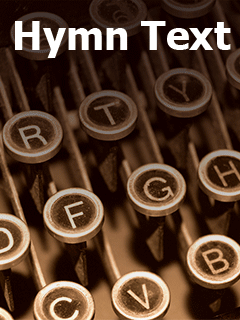Voices #11b
Display Title: Inupiaq First Line: Quyanna miik killiq simaaq tuat attausimun Tune Title: [Blest be the tie that binds] Author: John Pitney Date: 1992 Subject: Church | Community of Christ; Church | Ecumenism; Comfort | ; Love | ; Service Music | Following Communion; Service Music | Sending Forth
Voices #11b


 My Starred Hymns
My Starred Hymns





